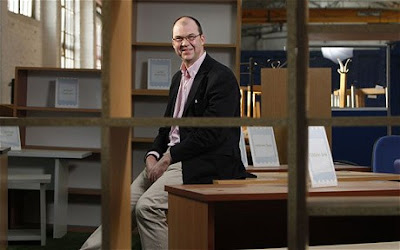The atmosphere was very jolly with people smiling, cheering and waving flags. I fell into conversation with an delightful older lady jammed next to me by the crowd. After apologising for getting me in the eye with her flag, she told me how much she had enjoyed every moment of the Olympics and Paralympics, that she had gone to see both and thought they were 'wonderful'. It seems that few have missed out on the spirit of 2012 and, for those of us lucky enough to go to the Games, it has been magical.
My role right from the very beginning of winning the bid had been to work with the Third Sector in the Cabinet Office, then headed up by Ed Miliband, to ensure as many social enterprises as possible were able to contribute to the building, running and legacy of the Games. For social enterprise advocates, our starting point back in 2009 was the vision of the Social Enterprise Square Mile and for us this has turned out to have been a successful Games, with social enterprises like HCT providing transport on the site, Catering to Order supplying food to the construction workers and Clarity the soaps and detergents, both of which provide employment to the visually impaired. At the time, Ed had been really fired up by the Olympics and was extraordinarily supportive, using his influence to persuade key folk like the then mayor, Ken Livingstone, to give me the time to explain why social enterprise was so on message for 2012.
 |
| My gold medalist, John Charles, a great social entrepreneur |
 |
| Truly the greatest show on earth |
As we left the Olympic Village we walked past the Aquatic Centre, which is now being managed by GLL, a great social enterprise that beat all other bidders in a highly competitive process to win this most prestigious 2012 legacy management contract. SEL, in our role as social enterprise ambassadors to the Games, supported its bid and I personally made representation to the legacy committee on its behalf, explaining the advantage of social enterprise in terms of its sustained commitment to local employment, community engagement rather than shareholders. So many victories made possible by vision and commitment.
Today, as the athletes went by, those of us on the pavement shouted our salutations and in turn many of them mouthed thank you to the crowd, including Victoria Pendlelton, Mighty Mo and Lee Pearson, which I thought was touching. They too seemed a little caught off guard by events. It's not in our nature, we Brits, to go over the top about things, but their achievement has given us all something to shout about. It is heartening to witness what can be done when faith and hard work are met with investment, something for us all to take away with and ponder.






